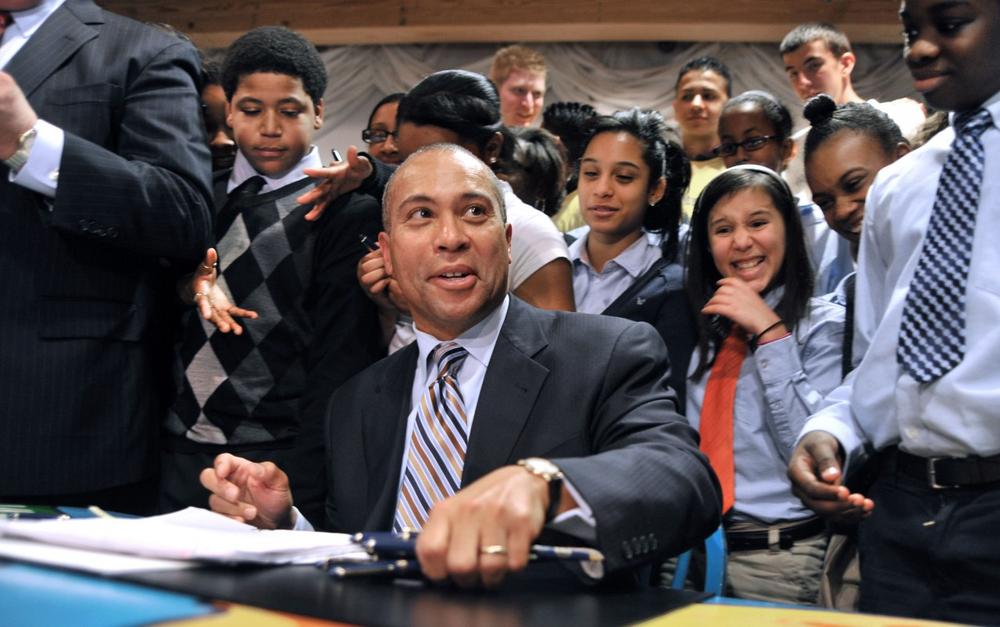Advertisement
Ahead Of Signing, Patrick Lauds Education Bill
Resume
On Monday, Massachusetts Gov. Deval Patrick signs a major education reform package that paves the way for the creation of additional charter schools and grants the state more power to turn around under-performing schools. Supporters also hope the package will boost the state's case for federal education dollars, which could total up to $250 million.
Speaking to WBUR on Monday morning, Patrick said the main aim for that package is to close student achievement gaps.
"That is our mission and our goal," Patrick said. "That is the reason for this package. Despite impressive gains in student achievement over the last 17 years, we are still leaving some kids behind. They tend to be poor kids, kids who speak English as a second language or have special needs. Often they are kids or color. Those are our kids, too.
"The theory behind this package," Patrick continued, "having listened to teachers and education advocates and parents, is to try some new things, including after-school programs, experiential learning, what teachers believe it takes to reach those kids. This package gives us the tools to do that."
Patrick cited example schools, such as Clarence R. Edwards Middle School in Charlestown and Excel Academy Charter School in East Boston, as locations where "right strategies" are being employed to develop "kids with a fire in their eye."
"What we are trying to do is create those conditions in every school," Patrick said.
The governor also responded to criticism that the legislation places too much emphasis on test scores and chastises teachers by letting superintendents go around union contracts in some cases.
"First, I don't think teachers are the problem, I think poverty is the problem," Patrick stated. "And in those rare circumstances where the work rules get in the way of doing what's necessary to reach the kids who are struggling, then the work rules get relaxed. It's as simple as that. It's not about a critique on the profession of teaching, or on unions for that matter. Indeed, the union leadership was responsible for shaping much of this bill. But our focus is on the children and it has to be on the children, first, last and always."
The education package was pushed through the House and Senate swiftly, in part to meet a deadline for possible federal money.
"We had a pretty good shot [of getting the money before], but I think this package makes our position even stronger," Patrick said.
However, Patrick also affirmed that reform can be achieved without federal dollars.
"We've been on this path of education reform for 17 years," Patrick added. "The question is: How can we reach the kids who have been left behind? And not all of those strategies require more money. Some just require a little more room in the constraints of a typical school day and the typical rules of operating a school."
This program aired on January 18, 2010.